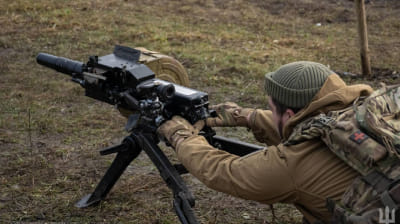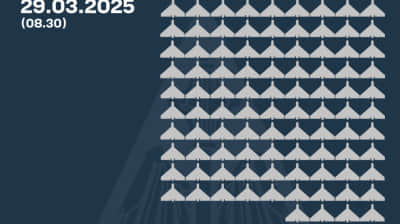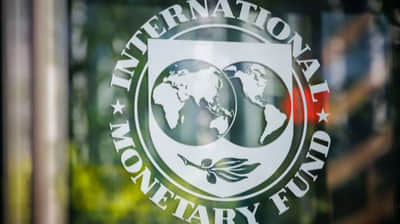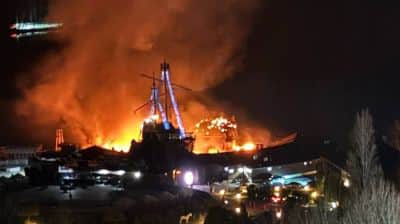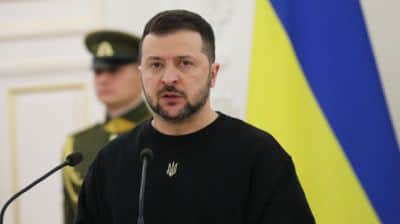Crimeans are urged to protest and evade Russian mobilisation
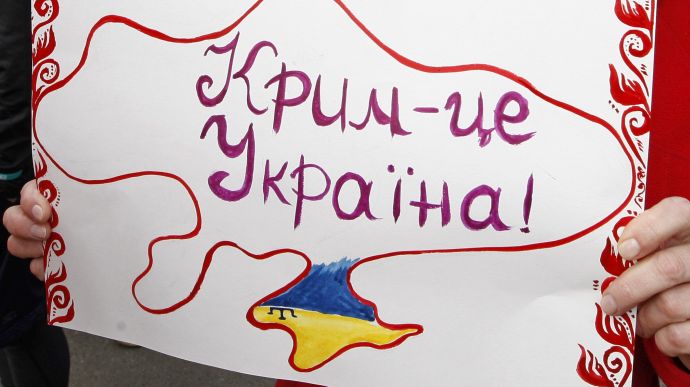
KATERYNA TYSHCHENKO – FRIDAY, 23 SEPTEMBER 2022, 18:21
The President of Ukraine’s representative in Crimea is urging residents of the Russian-occupied peninsula to evade mobilisation or surrender into captivity, while the Mejlis [representative body] of the Crimean Tatar people is calling for an ongoing protest.
Source: the president’s representative in Crimea; an appeal by the praesidium of the Mejlis of the Crimean Tatar people, posted on Refat Chubarov’s Facebook page
Details: The president’s representative noted that Russian mobilisation will primarily affect people living in the temporarily occupied territories, particularly Crimea, and reports of mobilisation notices being handed out en masse are already coming in from various parts of the occupied peninsula.
The Ukrainian president’s representative in Crimea has developed an algorithm of actions for Ukrainian citizens in Crimea and the city of Sevastopol, which may help them to "avoid ending up as cannon fodder for the empire". At the same time, they are advised to act carefully and weigh up the risks at each stage.
People are advised to hide, "go missing", and sabotage the Russian army draft in every way: to avoid being personally served with mobilisation notices or taking phone calls from the occupying "military enlistment offices"; to delete apps that provide administrative services or "lose" their smartphone; and if possible, to leave the occupied peninsula for another country, or leave their place of residence and keep their location quiet.
Those who have been issued with a mobilisation notice are advised not to go to the enlistment office. "Try to ‘go missing’ again, fall sick, or disappear. An administrative offence and a fine (500-3,000 roubles, an estimated U$9-52) are a very small price to pay compared with becoming ‘cannon fodder’ for the Russian Federation and dying on the battlefield," the message says.
The president’s representative also urges Crimeans to check the list of illnesses or injuries which will allow them to avoid mobilisation, or at least postpone it, under Russian law.
Those who are contacted by the occupying administration (visited at their home, telephoned, or approached in the street) are advised not to refuse to fulfil their so-called "military duty" during the conversation, but to give reasons why they cannot come to the enlistment office or serve at this time. For example: on health grounds, or because they are the son or brother of a dead soldier, a permanent carer for relatives in poor health, or the guardian or carer of siblings who are minors, or they are raising a child without a mother, have two or more children, are in full-time education, work as teaching staff at educational organisations, have a child with a disability under three years of age, have a child and a wife who is more than 22 weeks pregnant, are providing for four or more children under 16, and so on.
In cases where mobilisation could not be avoided, the president’s representative advises surrendering to one of the following: the Armed Forces of Ukraine; the National Guard; the National Police; the Territorial Defence Forces; the Security Service of Ukraine; or the State Border Service of Ukraine.
People are urged not to carry out illegal criminal orders that may lead to civilian casualties or the destruction of civilian infrastructure; such actions will be classed as international crimes with no statute of limitations.
"If you voluntarily join Russia’s Armed Forces and take part in the war against Ukraine, such actions will be considered a crime under the national legislation of Ukraine which is punishable by up to 15 years’ imprisonment," the message reads.
The praesidium of the Mejlis of the Crimean Tatar people called on the residents of Crimea to protest against mobilisation into the Russian army on an ongoing basis.
The Mejlis declared that the Russian occupying administration's forced mobilisation of residents of temporarily occupied Crimea into their army is a gross violation of the Geneva Convention of 12 August 1949 relative to the Protection of Civilian Persons in Time of War. Article 51 of the Convention states, "The Occupying Power may not compel protected persons to serve in its armed or auxiliary forces. No pressure or propaganda which aims at securing voluntary enlistment is permitted."
"An analysis of the data obtained by the Mejlis of the Crimean Tatar people on the mobilisation of residents of Crimea during just one day, 22 September 2022, shows that in the lists of mobilised citizens of various ethnic groups, the number of Crimean Tatars is significantly higher than their proportional representation in the population of Crimea. In some localities and regions, the number of Crimean Tatars mobilised is up to 80-90% of the number of people on the lists," the message says.
The Mejlis calls on all residents of Crimea to start an ongoing protest against the illegal and criminal mobilisation on the Central Square of the city of Simferopol on Saturdays and Sundays at 12:00 and on weekdays at 17:00.
It is also advising people to refuse to serve in the occupier's armed forces on the grounds of holding Ukrainian citizenship, refusing to become complicit in the international war crime being committed by the Russian occupying administration, and refusing to participate in the commission of crimes against one's own state - Ukraine - and one's fellow citizens.
Background:
- On the morning of 21 September, Russian President Vladimir Putin announced partial mobilisa tion.
- Later it turned out that the decree on mobilisation contains a secret paragraph which allows the Russian Ministry of Defence to draft up to a million people for the war.
- Protests were held in Russian cities on 21 September after partial mobilisation was announced. Law enforcement agencies report that police arrested at least 1,176 people.
- Detained protesters were issued with mobilisation notices in Moscow and Voronezh.
- According to Russian media, since the beginning of the partial mobilisation in Russia there have been attempts to set fire to at least five military enlistment offices, and cases of fires in administrative buildings have also increased.
Journalists fight on their own frontline. Become our patron, support our work!

